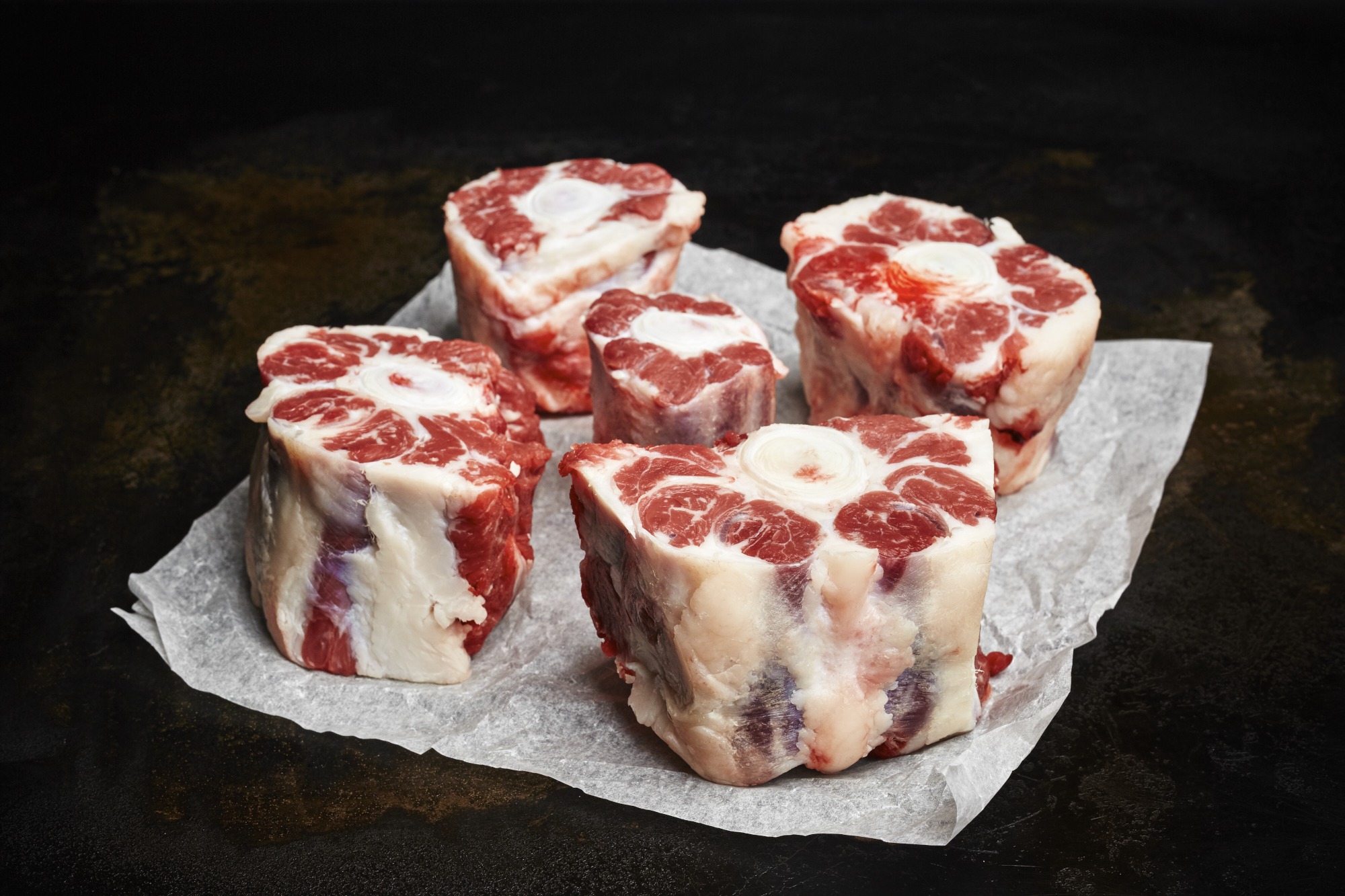Exploring Nigeria’s Culinary Landscape: The Tradition of Cooking Cow Tail Meat
Exploring Nigeria’s Culinary Landscape: The Tradition of Cooking Cow Tail Meat
Nigeria, a West African nation, is renowned for its vibrant and diverse culinary landscape. A true reflection of the country’s culture, Nigerian cuisine offers a unique blend of spices and ingredients. One of the most popular dishes across the country is cow tail meat. This traditional dish is not only a staple of the Nigerian diet but also a part of the national identity. Cow tail meat is an affordable, flavorful and versatile dish that is enjoyed by many. It is made with fresh ingredients and cooked with skill and patience. From street stalls to upscale restaurants, cow tail meat can be found across Nigeria, each with its own twist of flavor. The preparation of this dish can vary depending on region, but the love of this traditional dish remains consistent. For centuries, Nigerians have been enjoying cow tail meat and the bond between this dish and the country’s history is undeniable. By exploring Nigeria’s culinary landscape, one can gain insight into the country’s culture and identity.
Overview of traditional cow tail meat dish
Cow tail meat is a traditional Nigerian dish made from cow’s tail cooked with a variety of spices. The meat is usually roasted or boiled until tender. The dish is usually served with rice or fufu, a popular staple food in West Africa. The combination of rice and cow tail meat is referred to as “Cow tail and rice”. There is also a variation of the dish called “cow tail soup” which is made with cow tail meat, vegetables and herbs. It is a nutritious dish that is rich in minerals and vitamins. Cow tail meat is a favourite among Nigerians and is always in high demand. It is consumed at various occasions including weddings, parties, festivals, among others. In Nigeria, cow tail meat is one of the most popular dishes and can be found in most local eateries and restaurants. It is served as a snack and is also a good choice for a light meal when accompanied with rice or fufu.
Tradition and history of cow tail meat in Nigeria
Cow tail meat is a delicacy that traces its origin to ancient West African practices. It is believed that cow tail meat was first introduced in Nigeria by the Hausa people. The Hausa are an ethnic group found in Northern Nigeria, Southern Niger and Northern Cameroon. They are known for their rich cultural heritage and have played an important role in the history of Nigeria. As cow tail is a staple food among the Hausa people, it was only natural that the dish be introduced to Nigeria through trade. Cow tail meat was initially reserved for only special occasions such as weddings, festivals and other social events. It is said that it was King Dato of Daura, who made cow tail meat a compulsory menu for every event. However, it was not until the early 1900s that the dish became a regular menu item. According to several accounts, it was during this time that many Nigerians began to cook the meat regularly. More importantly, cow tail meat became a symbol of unity and interdependence among people and communities in the country. It was during this period that the dish was introduced to the public health system.
Regional variations in preparation of cow tail meat
The tradition of cooking cow tail meat in Nigeria is deeply rooted in the country’s culture. While the basic ingredients are the same, the method of preparation varies depending on region. There are two major regions in Nigeria where cow tail meat is prepared – Northern Nigeria and Southern Nigeria. Nigerian Northerners enjoy a distinct taste of cow tail meat with a blend of spices. They often flavour the meat with nutmeg, pepper and ginger. Southern Nigerians, on the other hand, prefer a blend of spices like garlic, coriander, and cayenne pepper. Cow tail meat is also prepared differently in each region. Northern Nigerians often use fresh cow tails to prepare the dish, but Southern Nigerians prefer to use dried cow tails.
Cultural and social significance of cow tail meat
As mentioned before, cow tail meat is deeply rooted in the culture of Nigeria. It is the national dish of the country and has a special significance in the history of the nation. Cow tail meat has long been associated with the cultural significance of weddings, festivals and other significant events across Nigeria. It is often consumed as a delicacy and has become a favourite among Nigerians. Cow tail meat has also become a symbol of interdependence and solidarity for Nigerians. Apart from being a staple food, cow tail meat has become an important source of income for many Nigerians who have been selling it since the early 1900s. In the early 1900s, the government of Nigeria introduced a system of stringent meat inspection, making it compulsory for meat sellers to obtain a licence. To obtain a licence, meat sellers were required to be in possession of an animal to slaughter and sell as meat. As a result, many Nigerians who were already slaughtering animals for food also started slaughtering animals for meat.
Popularity of cow tail meat in Nigeria
In the early 1900s, cow tail meat was the most popular meat among the people of Nigeria. Since its introduction, the popularity of the dish has continued to grow. During the mid-20th century, cow tail meat became a common delicacy among the Nigerian public and was consumed regularly. The dish was also served in most restaurants across the country. In the 1980s, cow tail meat began to make its way beyond the shores of Nigeria. It became a popular dish among the African Diaspora in the Americas, Europe and Asia. In fact, the popularity of the dish led to the establishment of the Cow Tail Chef Society, a group that is dedicated to the promotion of the dish.
Nutritional value of cow tail meat
Cow tail meat is a nutritious meal that is rich in protein and minerals. It is also a good source of calories and vitamins. Cow tail meat is rich in minerals like calcium, iron, magnesium and potassium. It also provides vitamins A, B and C. Cow tail meat contains protein that is essential for body growth and development. It is a good source of calories and can be consumed as a meal or snack when combined with a carbohydrate like rice or fufu. Coupled with the fact that the dish contains few calories, one can conclude that cow tail meat is a healthy food choice.
Traditional cooking techniques used
There is no right or wrong cooking technique for preparing cow tail meat. The dish can be prepared using various cooking techniques. All that is required is to marinate the meat with a blend of spices and cook it in a pot or roaster. Cow tail meat cooks quickly and it is best to cook it with a small amount of liquid. The dish can also be cooked with other ingredients such as vegetables, beans and spices.
Availability of cow tail meat in Nigeria
Cow tail meat is a common dish in Nigeria and can be found in most local eateries and restaurants. Cow tail meat is available in almost all Nigerian cities and towns. You can also find it in supermarkets and online stores.
Conclusion
Cow tail meat is a traditional Nigerian dish that dates back centuries. It is a nutritious meal that is rich in minerals and vitamins. It is also rich in protein and can be prepared using a variety of methods. The dish can be found in most local eateries and supermarkets and is a good choice for a light meal accompanied with rice or fufu. Cow tail meat is a cultural dish that has been enjoyed by Nigerians for many years. The dish is deeply rooted in the culture of the country and has a special significance in the history of Nigeria. It is the national dish of Nigeria and has become a popular delicacy among the African Diaspora. The nutritional value of cow tail meat makes it a good diet option and a nutritious meal that can be enjoyed by all.







LEAVE A COMMENT
You must be logged in to post a comment.